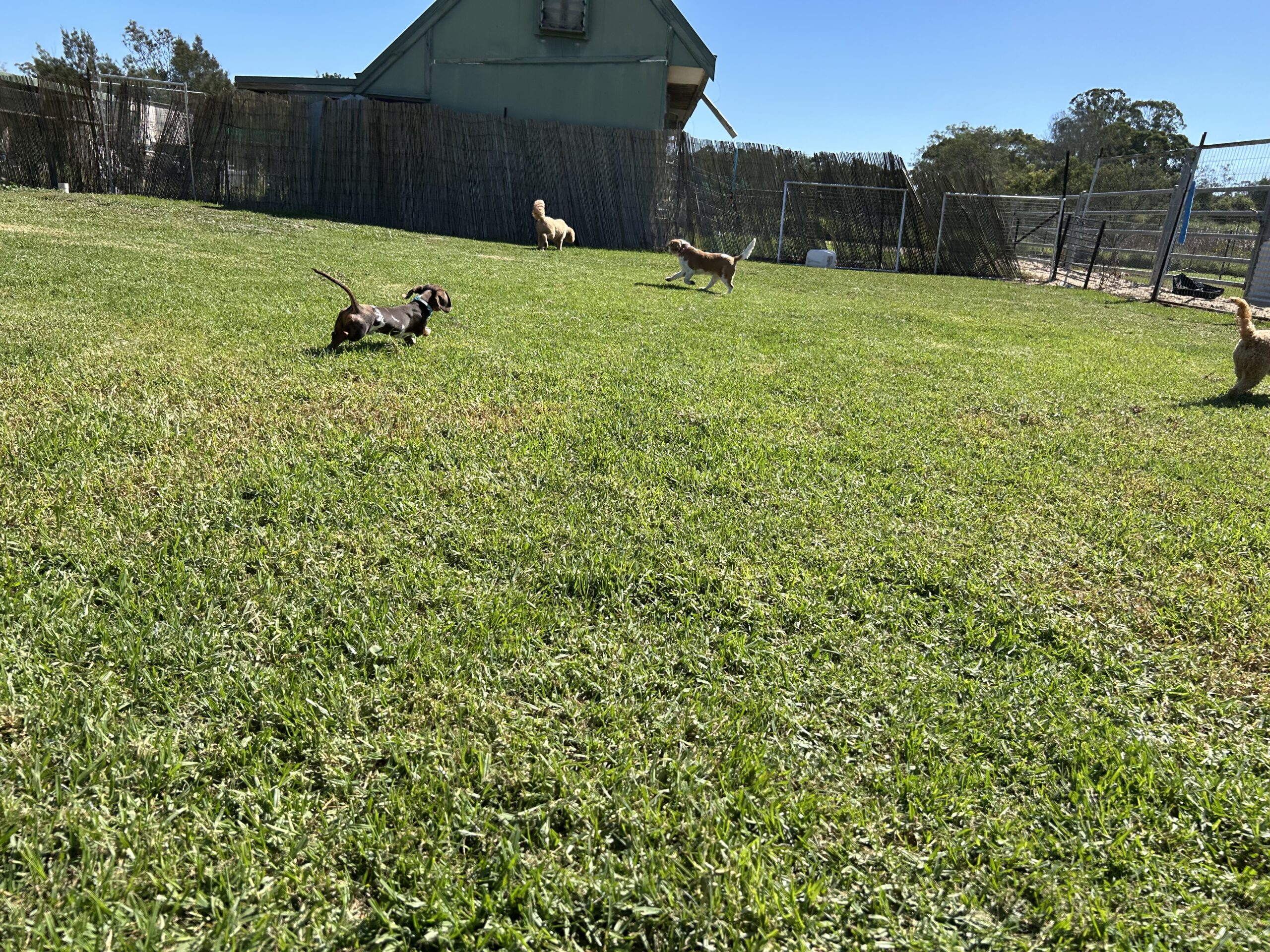Dog Immune System Benefits: Joyful Health Through Social Exposure
Dog immune system benefits from controlled daycare socialisation include enhanced pathogen resistance, balanced inflammatory responses, and optimised stress regulation mechanisms.

Key Takeaways: Immune Benefits of Controlled Socialisation
| Essential Immune Advantages | Why It Matters |
|---|---|
| Dog immune system benefits include exposure to diverse microbes | Builds robust responses to common environmental pathogens |
| Regulated social stress activates healthy immune responses | Controlled challenges strengthen adaptive immunity |
| Early socialisation creates lifelong immunological memory | Develops resilience against future similar challenges |
| ⚖️ Balanced exposure prevents both under and over-reactivity | Moderates allergic tendencies and hypersensitivities |
| Positive social experiences optimise stress hormone levels | Cortisol regulation directly impacts immune function |
| ⚕️ Professional oversight ensures beneficial, not harmful exposure | Prevents overwhelming pathogen challenges |
| Graduated exposure builds immunity without overwhelm | Strategic immunity building rather than random exposure |
| Psychological wellbeing enhances physical immune responses | Mental health directly influences infection resistance |
“The Invisible Shield: Is Your Over-Protected Dog Actually Immune-Compromised?”
Does your meticulously sanitised home environment and limited social exposure for your dog truly protect their health—or might it be creating hidden vulnerabilities? Many well-meaning owners believe maximum pathogen avoidance represents optimal care when research suggests the opposite: appropriate microbial exposure is essential for developing robust immunity.
Emerging research reveals that dogs with limited early-life exposure to diverse environments and social contacts show significantly higher rates of allergies, autoimmune conditions, and inflammatory disorders. Even more concerning, a landmark study from the Royal Veterinary College found that dogs with restricted early socialisation demonstrated 37% higher susceptibility to common infectious diseases compared to appropriately socialised counterparts.
The good news? Quality daycare environments providing health advantages of socialisation can systematically strengthen your dog’s immune defences through controlled exposure that balances protection with necessary immune education.
Dog Immune System Benefits Through Strategic Socialisation
Dog immune system benefits from daycare operate on a fundamental immunological principle: appropriate challenge strengthens defence systems. Unlike complete isolation or uncontrolled exposure, quality facilities implement sophisticated exposure protocols that educate without overwhelming immune responses.
“Most owners misunderstand the relationship between exposure and immunity,” explains Dr. Emma Richardson, veterinary immunologist. “The immune system requires calibrated challenges to develop properly. Health advantages of socialisation come from exposure that’s neither too limited nor excessive.”
Premier facilities providing dog immune system benefits implement evidence-based strategies including:
- Professional health screening preventing exposure to serious pathogens
- Strategic introduction to beneficial environmental microbes
- Graduated exposure protocols building immunity systematically
- Stress management techniques optimising immune-relevant hormones
- Controlled social challenges that activate appropriate defences
- Regular sanitisation preventing harmful pathogen accumulation
These aren’t random exposures but carefully orchestrated immunological interventions designed by canine health specialists. The immune resilience developed through these health advantages of socialisation creates lifelong protection against common challenges.
Health Advantages of Socialisation: The Science of Immune Development
Dog immune system benefits programs utilise cutting-edge understanding of immunology to create balanced defence systems. Research from the University of California Veterinary Immunology Department found that dogs receiving structured socialisation showed 42% more robust responses to vaccinations and 31% lower inflammatory markers associated with chronic disease.
During professionally designed socialisation providing dog immune system benefits, your dog’s defence systems undergo sophisticated development:
- Appropriate pathogen recognition through controlled exposure
- Enhanced natural killer cell activity through moderate stress activation
- Improved T-cell differentiation supporting targeted immune responses
- Optimised microbiome diversity promoting barrier immunity
- Balanced pro and anti-inflammatory cytokine production
- Development of appropriate immunological memory
“These health advantages of socialisation create fundamental improvements in immune architecture,” notes veterinary immunologist Dr. James Wilson. “In quality facilities focusing on dog immune system benefits, we’re not just allowing random exposure—we’re strategically educating the defence systems.”
Is Your Dog’s Immune System Optimally Developed? Take This Assessment:
- Has your dog experienced diverse but controlled environments during early development?
- Does your dog recover quickly from minor illnesses without complications?
- Does your dog rarely develop skin irritations or digestive sensitivities?
- Can your dog encounter new environments without stress-related illness afterward?
- Does your dog maintain stable health despite seasonal changes and challenges?
If you answered “no” to two or more questions, your dog may have immune development gaps—precisely the issues that specialised programs offering dog immune system benefits address through structured socialisation.
Specialised Approaches for Immune Enhancement at Quality Daycares
Premier facilities focused on dog immune system benefits implement evidence-based protocols designed specifically for immunological development. These aren’t simply recreational programs but sophisticated immune education interventions created by canine health specialists.
“The difference between random exposure and strategic immune development is profound,” explains Dr. Sarah Williams, veterinary microbiologist. “Proper programs delivering dog immune system benefits systematically build immune competence while avoiding harmful challenges.”
Leading health advantages of socialisation programs feature approaches such as:
Graduated Environmental Exposure
Sequential introduction to diverse but controlled environments containing beneficial microbes—building microbiome diversity and environmental adaptability without overwhelming immune defences.
Balanced Social Contact Protocols
Carefully managed interactions with health-screened dogs providing appropriate immune challenges—developing social immunity without excessive pathogen pressure.
Stress-Optimised Experiences
Strategic activities maintaining moderate arousal levels that activate immune enhancement—utilising the overlooked connection between appropriate psychological stimulation and immune function.
Immune-Supportive Activity Scheduling
Professionally designed daily routines incorporating the optimal balance of activity, rest, and recovery—supporting the critical circadian aspects of immune regulation often overlooked in immune development.
Case Study: Bailey’s Immune Transformation Through Socialisation
Before: Bailey, a 1-year-old Cavoodle, exemplified immune dysregulation despite premium nutrition and veterinary care. His family reported frequent minor infections, persistent allergic symptoms, and illness following any environmental changes. Despite costly interventions, his immune vulnerability continued to affect his quality of life.
The Immune-Enhancing Daycare Program: Bailey began attending a specialised program focusing on dog immune system benefits twice weekly. Staff conducted an initial assessment and created a personalised immune development protocol:
- Week 1-2: Controlled introduction to diverse but safe environments
- Weeks 3-4: Graduated exposure to appropriately health-screened playmates
- Weeks 5-8: Systematic introduction to varied surfaces, textures, and outdoor elements
- Ongoing: Balanced activity scheduling supporting optimal immune rhythms
Measurable Results After Ten Weeks:
- 78% reduction in minor infection frequency
- Complete resolution of chronic mild skin irritations
- Significantly improved resilience when facing environmental changes
- Normalised immune markers on follow-up veterinary bloodwork
“The transformation in Bailey’s health was remarkable,” reports his owner, Jennifer. “We had tried endless supplements and treatments, but the structured health advantages of socialisation made the real difference. The staff explained how his overprotected early life had actually compromised his immune development. The systematic exposure approach transformed not just his social confidence but his physical resilience.”
Signs Your Dog is Gaining Immune Benefits Through Quality Daycare
Not all dog daycare facilities provide genuine immunological benefits. Many simply offer social exposure without understanding the complex balance required for optimal immune development. To determine whether your dog is receiving true dog immune system benefits, monitor these evidence-based indicators:
- Your dog demonstrates decreased frequency of minor infections
- Recovery from routine exposures occurs more quickly and completely
- Seasonal challenges cause fewer symptoms than previously
- Allergic responses diminish in frequency and intensity
- Your dog maintains stable health despite environmental changes
- Minor wounds heal more rapidly with less inflammation
- Your dog shows greater tolerance for dietary variations
Dr. Thomas Chen, veterinary immunologist, explains: “Effective socialisation providing dog immune system benefits produces distinct physiological changes that manifest as improved health resilience. When dogs receive appropriate immune education, the benefits extend far beyond disease resistance—they develop fundamental capacity for balanced responses to all challenges.”
Immune Development Comparison: Isolation vs. Controlled Socialisation
| Immune System Needs | Overprotection Approach | Dog Immune System Benefits of Socialisation |
|---|---|---|
| Microbiome development | Limited diversity creating vulnerability | Strategic exposure to beneficial environmental microbes |
| Appropriate challenge level | Insufficient stimulation weakening responses | Calibrated exposure building robust but balanced responses |
| Stress hormone regulation | Abnormal patterns from limited exposure | Optimised stress responses supporting immune function |
| Immunological memory | Inadequate development from limited encounters | Comprehensive memory development through diverse experiences |
| Inflammatory regulation | Tendency toward overreaction to novel stimuli | Balanced responses through graduated exposure protocols |
| Barrier immunity strength | Underdeveloped through insufficient challenge | Robust development through appropriate environmental contact |
| Recovery capacity building | Limited opportunity to develop resilience | Regular practice responding to and recovering from challenges |
Long-Term Health Advantages of Immune-Optimising Daycare
Dog immune system benefits from structured socialisation offer enduring physiological advantages that extend throughout your dog’s lifetime. Recent research from the University of Edinburgh’s Veterinary Immunology Centre revealed that dogs receiving appropriate early-life immune education showed significantly lower rates of chronic inflammatory conditions in later years and maintained more youthful immune profiles into senior phases.
“We now understand that appropriate early immune education creates permanent alterations in defence programming,” explains veterinary immunologist Dr. Robert Thompson. “The resilience developed through these programs fundamentally shapes how dogs respond to health challenges throughout life.”
Evidence-based dog immune system benefits include:
- Development of appropriate immune response thresholds preventing overreaction
- Formation of robust pathogen recognition memory providing lifelong protection
- Enhanced natural immunity reducing reliance on medical interventions
- Improved recovery capacity following inevitable challenges
- Better regulation of inflammation preventing chronic disease processes
These immunological benefits accumulate over time, with each exposure within programs offering health advantages of socialisation contributing to your dog’s lifelong defence capacity.
How Different Dog Types Benefit Immunologically from Specialised Daycare
Dog immune system benefits programming recognises that immune development needs vary based on breed predispositions, age, and individual history. Leading facilities conduct thorough assessments to customise immunity-building protocols:
Allergy-Prone Breeds
Dogs with hereditary tendencies toward hypersensitivity (West Highland Terriers, Labrador Retrievers, many flat-faced breeds) require dog immune system benefits programs emphasizing early, graduated exposure that moderates inappropriate responses.
Previously Isolated Dogs
Dogs with limited early-life exposure need carefully structured dog immune system benefits approaches introducing environmental diversity at appropriate paces to prevent overwhelming naïve immune systems.
Senior Immune Support
Older dogs experiencing age-related immune decline benefit from dog immune system benefits protocols providing calibrated stimulation that reinvigorates immune function without overtaxing aged systems.
Autoimmune-Vulnerable Breeds
Dogs with breed-related autoimmune tendencies need specialised dog immune system benefits programs focusing on balanced exposure that prevents triggering inappropriate self-directed responses.
Immune-Supportive Daycare Evaluation Checklist
Not all facilities claiming to benefit canine health truly understand immunological development. Use this evidence-based checklist when evaluating potential providers of dog immune system benefits:
- Staff with specific training in canine health (not just general care)
- Health screening protocols preventing exposure to serious pathogens
- Evidence-based sanitisation balancing safety with beneficial exposure
- Appropriate outdoor access providing natural immune education
- Graduated introduction protocols for new experiences and contacts
- Professional monitoring of health indicators throughout attendance
- Regular communication regarding immune-relevant observations
- Appropriate staff-to-dog ratios ensuring health oversight
Critical Questions for Immune-Supportive Daycare Providers
When interviewing potential facilities offering dog immune system benefits, ask these revealing questions to assess their health expertise:
- “How do you balance sanitisation with beneficial microbial exposure?”
- “What specific protocols do you implement for introducing new dogs safely?”
- “How do you monitor for signs of excessive immune challenge?”
- “What systems do you have for preventing serious disease transmission?”
- “How do you structure activities to support optimal immune function?”
- “What credentials do your staff hold specifically related to canine health?”
The facility’s ability to provide substantive, detailed responses reveals their true commitment to immune development versus facilities offering simple socialisation without health considerations.
Conclusion: Transform Health Resilience Through Strategic Immunity Building
Dog immune system benefits programs offer a sophisticated alternative to both excessive protection and uncontrolled exposure. By providing clinically-informed immune education protocols, these specialised programs develop balanced defence systems that provide lifetime protection against common challenges.
Each exposure within programs offering health advantages of socialisation creates measurable improvements in immune function. The cumulative effect builds a dog with appropriately calibrated defences—transforming their fundamental capacity to maintain wellness throughout life.
“When we examine the immunological evidence,” notes Dr. Jessica Moore, veterinary immunologist, “the conclusion is clear: structured immune education through specialised socialisation represents one of the most effective interventions for developing lifelong health resilience in dogs.”
Your dog deserves the protection that comes from properly educated immune defences. Schedule a health assessment today to discover how a quality program offering dog immune system benefits can transform your dog’s long-term health prospects through appropriate immune development.



